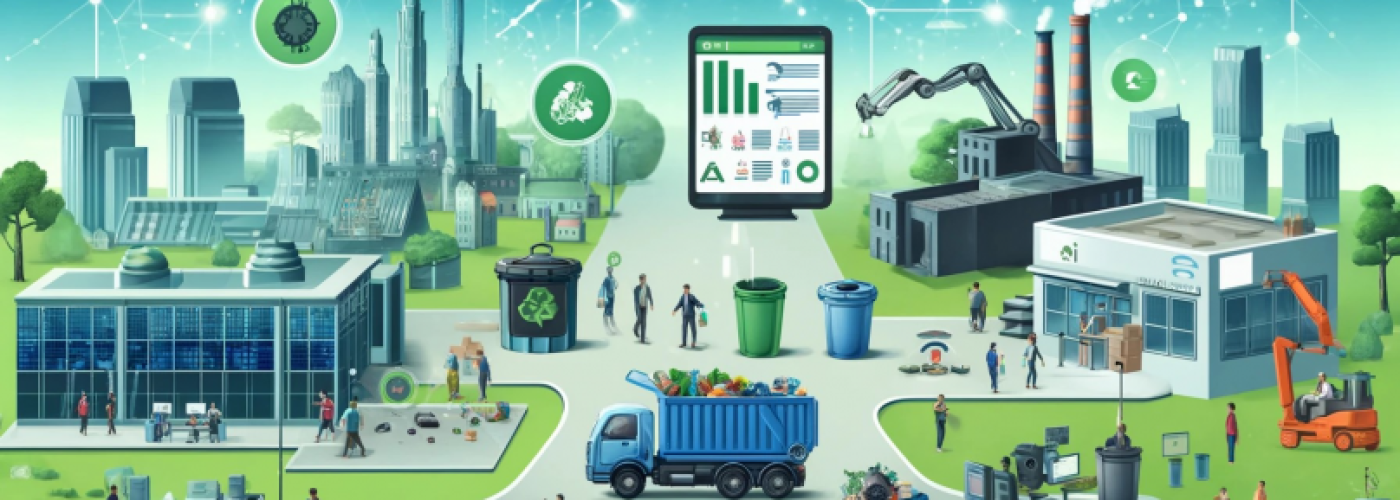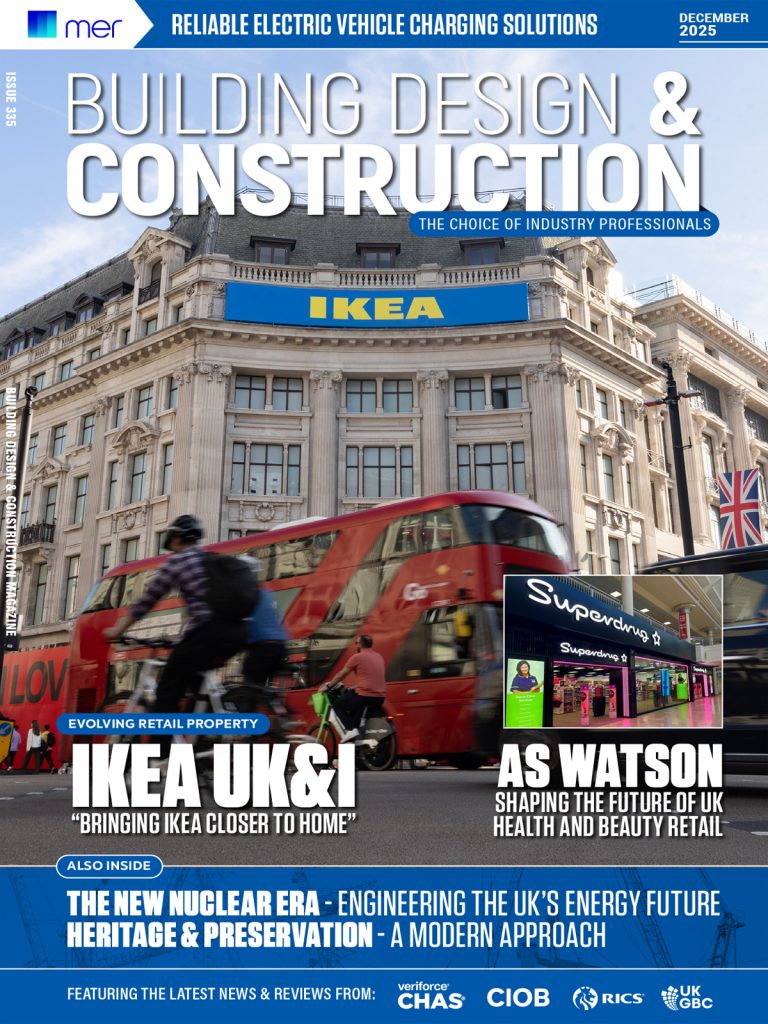If you’ve ever stepped onto a construction site, you know things can get messy fast. Piles of debris, discarded materials, and scattered waste aren’t just an eyesore—they can slow down productivity, create safety hazards, and even lead to costly fines if not handled properly. A solid waste management plan is essential to keeping your site organized, efficient, and compliant with regulations. Whether you’re working on a small build or a large-scale project, managing waste effectively can make all the difference.
1. Partner with a Reputable Dumpster Rental Company
One of the easiest ways to streamline waste removal is by working with a professional dumpster rental company. Having the right-sized dumpster on-site means workers can dispose of waste immediately instead of letting it pile up. Not only does this keep the work area clean, but it also improves safety and minimizes disruptions.
A good rental company will offer a range of dumpster sizes, flexible rental periods, and prompt pickups. They’ll also ensure that your waste is handled responsibly, following proper disposal and recycling guidelines. Before choosing a provider, check their reputation, pricing structure, and any additional services they offer, such as sorting or eco-friendly disposal options. Consider using Waste Removal USA if you want a reliable company that offers a range of options.
2. Sort and Separate Waste Materials
Not all construction waste belongs in the same pile. Proper sorting is key to minimizing landfill waste and increasing the amount of material that can be recycled or reused. Common construction waste categories include:
- Concrete and bricks – Can often be crushed and repurposed for future projects.
- Wood – Can be reused, repurposed, or chipped into mulch.
- Metals – Scrap metal can be recycled and even resold.
- Plastics – Some plastics can be recycled, while others require special disposal.
- Hazardous waste – Items like paint, solvents, and adhesives need careful handling.
Creating separate collection bins for different materials makes sorting easier from the start, reducing the risk of contamination and increasing recycling efficiency.
3. Train Your Team on Proper Waste Disposal
A well-planned waste management strategy only works if everyone on-site follows it. That’s why training your crew is just as important as having the right systems in place. Workers should know:
- What materials go into each waste bin
- How to handle hazardous materials
- The importance of minimizing unnecessary waste
- The proper way to dispose of packaging and excess materials
Clear signage and designated disposal areas can make the process more straightforward, ensuring waste is handled correctly without confusion.
4. Reuse and Recycle Whenever Possible
A lot of construction waste doesn’t have to go straight into a dumpster. Many materials can be salvaged and used again in future projects. Wood, for example, can be repurposed for framing or furniture, while bricks and concrete can be crushed for road bases. Even leftover drywall can be recycled into new sheetrock.
Recycling not only reduces waste but can also save money. Instead of constantly purchasing new materials, contractors who reuse items strategically can cut costs and reduce their environmental impact.
5. Plan for Waste Reduction from the Start
The best way to manage waste is to generate less of it in the first place. A waste-conscious approach to planning and procurement can significantly cut down on the amount of excess material you have to deal with. Some ways to achieve this include:
- Ordering materials in precise quantities to avoid unnecessary leftovers.
- Using prefabricated components that reduce on-site waste.
- Selecting suppliers that use minimal packaging or offer take-back programs.
By thinking about waste from the start, you can make more sustainable choices and avoid unnecessary disposal costs.
6. Schedule Regular Waste Pickups
Even with a well-organized waste disposal system, construction sites generate a lot of debris. Without regular removal, dumpsters can overflow, and waste can start accumulating in unwanted areas. Scheduling frequent pickups ensures that waste doesn’t become a hazard or slow down productivity.
Many waste management companies offer scheduled pickups based on project timelines, so you don’t have to worry about coordinating last-minute removals. Having a reliable schedule keeps the work environment cleaner and more efficient.
7. Stay Compliant with Local Regulations
Construction waste disposal isn’t just about keeping the site tidy—it also involves following legal guidelines. Regulations vary depending on location, but some common rules include:
- Proper disposal of hazardous materials
- Restrictions on landfill dumping
- Recycling requirements for specific materials
- Permits for large-scale waste removal
Failing to comply with these regulations can result in fines or project delays. It’s always a good idea to stay informed about local waste management laws and work with a professional waste disposal company that understands them.
8. Consider Sustainable Waste Management Practices
Sustainability is becoming a bigger priority in the construction industry, and waste management plays a huge role in that. Instead of treating waste as an afterthought, consider environmentally friendly solutions that reduce landfill impact and promote circular economy practices.
Some green initiatives include:
- Deconstruction instead of demolition – Carefully dismantling structures allows materials to be salvaged and reused rather than destroyed.
- Donating unused materials – Many organizations accept surplus materials like wood, tiles, and fixtures for community projects.
- Composting organic waste – If your project generates green waste, composting can be a great alternative to disposal.
These approaches help reduce environmental harm while also benefiting communities and future projects.
9. Encourage a Clean Work Environment
A site with an effective waste management system is not just cleaner—it’s safer and more productive. Encouraging workers to keep the area free of debris, properly dispose of materials, and maintain an organized workspace can significantly improve efficiency.
Having a designated waste management plan also boosts morale, as workers can focus on their tasks without navigating through piles of discarded material. A clean site means fewer accidents, better workflow, and a more professional appearance for clients and inspectors.
Smarter Waste Management Leads to Better Projects
Handling waste properly on construction sites isn’t just about compliance—it’s about creating a safer, more efficient, and environmentally responsible work environment. By partnering with a reliable dumpster rental company, sorting materials, reusing resources, and planning waste management from the start, you can reduce costs, improve site safety, and keep projects running smoothly. With the right approach, waste doesn’t have to be a problem—it can be an opportunity to build smarter and greener.





